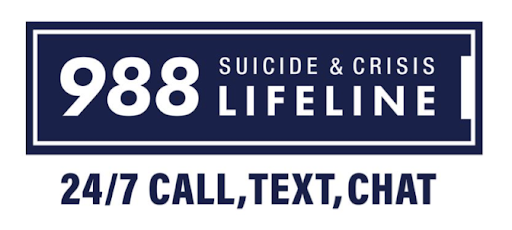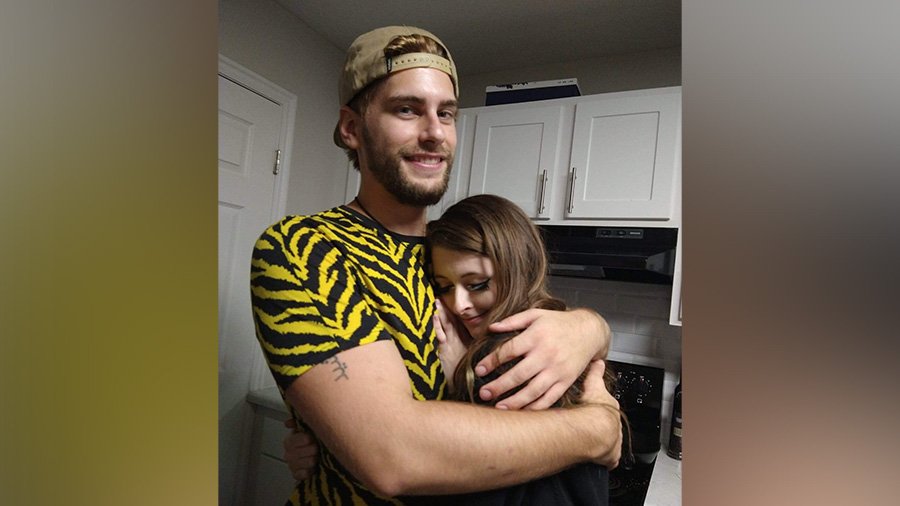Karns — When Augie Marie met Joe in 2020, everything fell into place.
“He had such a big heart and every day was an adventure,” Marie said. “It was like the fairy-tale romance and love that every girl wants.”
Just months before he was scheduled to graduate from college in 2021, Joe took his own life.
“He just disappeared,” Marie recalled.
She said she had no idea her boyfriend was in pain – to her, he was the happiest, most loving man.
“I can play the ‘I wish’ game all day long, but I wish he’d said something, reached out, and I wish I’d said something. Those are the two sides of the same coin,” she said.

Photo of Marie and Joe on the Salt Flats. (Courtesy of Augie Marie)
Research shows that one in 10 men experience depression or anxiety, but less than half receive treatment.
“Men are often taught not to talk about this, to just bear it, to endure it. We have to be strong,” says Jeffrey Ainsa, licensed social worker and clinical director of Evolved MD.
Ainsa said the pressure to “act manly” could make men feel the need to hide their feelings and cause them to lose hope, and it could affect them at any age.
According to the CDC, men over 75 have the highest suicide rates overall.
“Some of our older patients are talking about things for the first time in their lives,” Ainsa says.
‘So difficult’: RSL’s Diego Luna opens up about mental health struggles
Ainsa suggested looking for signs that your loved one is withdrawing or losing interest. Give them space to open up. Even something as simple as asking, “How are you?” may help.
“If people can see that we genuinely connect with them and that all we’re trying to do is connect and spend time with them, then maybe that will put people at ease a little bit and make them think, ‘OK, this is safe and I can talk to you,'” Ainsa said.
Grieving has been a long process for Marie, but she continues to keep the promise she made at the funeral to live life to the fullest — and spread a message of hope.
“You’re not alone, even if it feels or seems that way at times,” she said. “You may be nearing the end of a chapter in your life, but you don’t want to let go of your book.”
If you or someone you know needs emergency help, please call or text the 988 Suicide Crisis Lifeline.

If you or someone you know is having suicidal thoughts or showing warning signs: 988 Suicide and Crisis Lifeline in 988 Crisis counselors are available 24/7. Huntsman Mental Health InstituteAll calls to traditional crisis hotlines, including the former National Suicide Prevention Hotline at 1-800-273-8255, will also be connected to crisis care workers at Huntsman Mental Health Institute.
Additional resources
- Safe UT: Parents, students and educators can connect with licensed crisis counselors via chat. SafeUT App or call 833-3SAFEUT (833-372-3388).
- SafeUT Frontline: Emergency personnel, including firefighters, police, paramedics and medical professionals, can chat with a licensed crisis counselor for free, 24/7. SafeUT Frontline App.
- Safe UTNG: National Guard members can download the app to chat with licensed crisis counselors for free, 24/7. SafeUTNG App.
- Utah Warm Line: If you are not in a crisis but just need a listening ear to recover and heal from personal distress, call 1-833 SPEAKUT 7 days a week from 8am to 11pm.
- of Huntsman Mental Health Institute We offer a wide variety of programs and services, including suicide prevention and crisis services, inpatient treatment, therapy and medication management, substance use and addiction recovery, child and teen programs, and maternal mental health services including birth trauma, pregnancy loss, infertility, and perinatal mood and anxiety disorders.
- Live on Utah is a statewide initiative to prevent suicide by promoting education, providing resources and changing the culture in Utah around suicide and mental health. It offers resources for faith-based organizations, LGBTQ+, youth, employers, gun suicide prevention, crisis and treatment options.
Every county in Utah offers mental health and substance use disorder services. Centers run by the state’s 13 local mental health and substance use authorities offer therapy, substance use disorder treatment, support groups, transportation services, adolescent treatment and more.
These resources and further information can be found here: https://www.uacnet.org/behavioralhealth.

